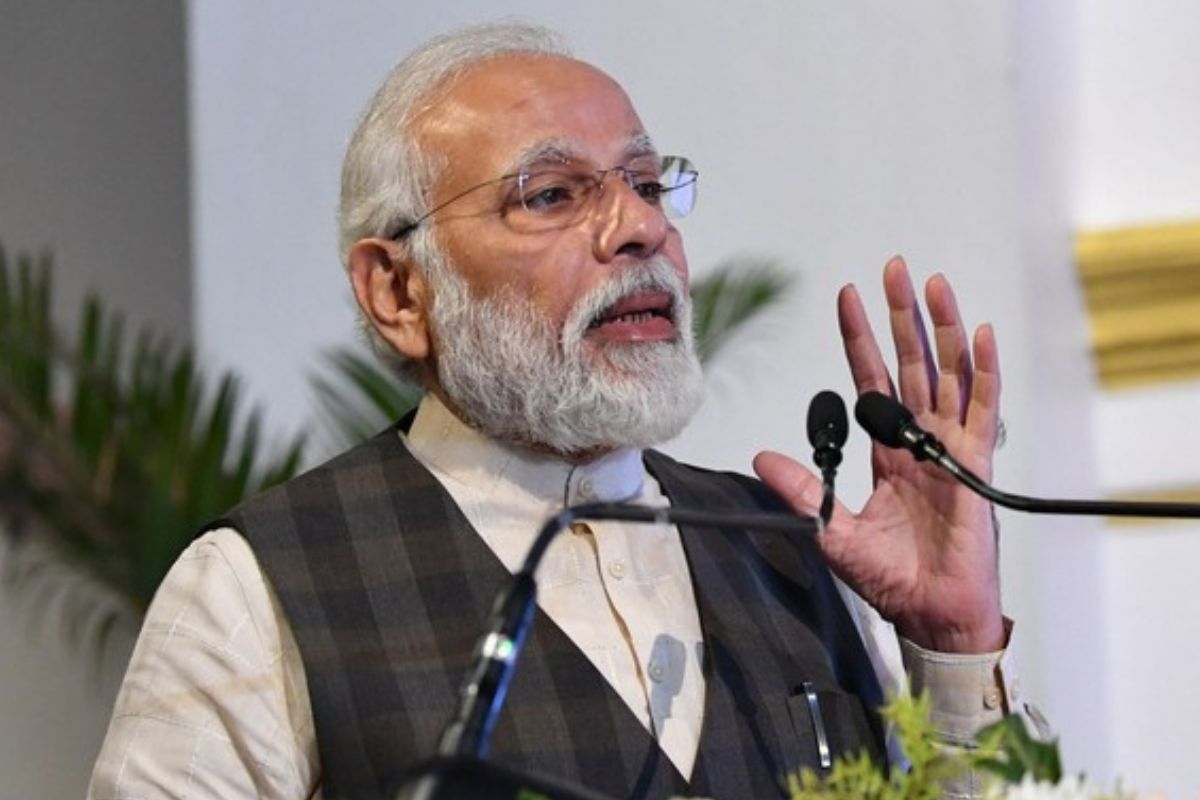PM Modi on 3-day visit to 3 states–MP, Bihar, Assam–from Sunday
According to the Prime Minister’s Office (PMO), the Prime Minister will visit Madhya Pradesh, Bihar and Assam from February 23-25.
On a visit to his Gujarat, Narendra Modi inaugurated and laid foundation stones for projects worth over Rs 2,450 crore relating to water supplies, roads, urban development and mines.

Prime Minister Narendra Modi (File Photo: ANI)
On the visit to his home state Gujarat on Friday, Prime Minister Narendra Modi inaugurated and laid the foundation stone for projects worth over Rs 2,450 crore relating to water supplies, roads, urban development and mines.
The prime minister also participated in the “Gruh Pravesh” (house warming) ceremony of 19,000 beneficiaries of Pradhan Mantri Awas Yojana (PMAY) by handing over the keys of their houses, worth Rs 1,950 crore.
Advertisement
Addressing a gathering on the occasion, Modi said that his government has made housing a strong base for war against poverty and a tool for empowerment and dignity of the poor.
Advertisement
He added that the government is eliminating inequality, reaching every poor and ensuring 100 per cent saturation. “We must understand that a home is more than just a shelter. It is a place of faith where dreams are realized and new possibilities are born,” the prime minister said.
He said around four crore homes have been provided to the poor during the last nine years. “Nearly 70 per cent of these homes are in the names of women, turning the mothers and daughters into Lakhpati Didi”, he added.
The prime minister also participated in the 29th Biennial Conference of the All India Primary Teachers’ Federation and walked through the exhibition with the theme ‘Teachers are at the Heart of Transforming Education’.
Speaking on the occasion, he highlighted the huge contribution of all teachers at a time when India is moving forward with the resolve of ‘Viksit Bharat’ in the Amrit Kaal. The prime minister said his experience with teachers of Gujarat helped him at the national level and also for creating a policy framework.
He cited the example of constructing toilets in schools for girls in mission mode and talked about starting science education in tribal areas.
“School dropout rate in Gujarat was about 40 per cent, and now it is less than three per cent,” the Prime Minister pointed out and attributed the feat to the teachers.
He said many world leaders have high regards for Indian teachers and recounted how the Kings of Bhutan and Saudi Arabia and the Director General of WHO had talked highly of their Indian teachers.
Advertisement